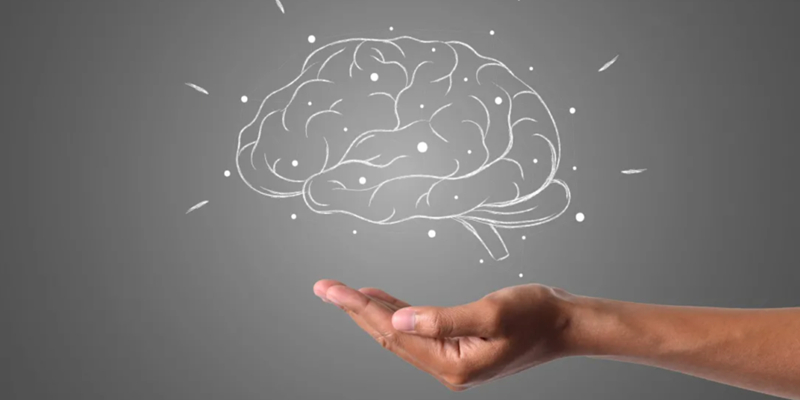6 Common Signs of Neurological Disorders and When to Seek Help
6 Common Signs of Neurological Disorders and When to Seek Help
Neurological disorders like Alzheimer's and Parkinson's disease are becoming more common. As we age or experience trauma, recognizing symptoms early is critical.
Did you know subtle signs like mild cognitive or movement issues may indicate neurological changes? Understanding common symptoms can lead to early intervention.
Getting evaluated after noticing symptoms can improve quality of life immensely. Seeking help starts the journey toward treatment that may slow progression.
This blog post will discuss 6 Common Signs of Neurological Disorders and When to Seek Help. Read on to increase your awareness of symptoms that signal seeing a doctor.

6 Common Signs of Neurological Concerns
You may notice neurological changes happening gradually. Paying attention to even mild issues with memory, coordination, numbness, or vision can lead to early treatment. Here are six common neurological symptoms to watch out for:
1.Persistent Memory Loss Impacts Daily Functioning
Forgetting the occasional name or appointment is normal after age 50. However, consistent issues recalling details about family, events and routines or getting lost in familiar places indicate possible neurological illness.
Dementia screening tools can diagnose based on difficulty organizing tasks, following story plots, or judging time after handling these well. Tracking lapses helps assess if memory issues persist.
When to seek help?
Report it if memory problems worsen steadily. Losing function doing hobbies, helping kids with homework or performing your job warrants evaluation – early Alzheimer's intervention can drastically improve function with mental exercises and medication. Ask loved ones if they've noticed a consistent mental decline.
2.Challenges Staying Balanced and Coordinated
Stumbling, losing steadiness, having difficulty walking or experiencing falls could mean conditions impacting movements like Parkinson's or inner ear disorders.
Monitor if shakiness, loss of dexterity, rigidity, or slow movement make eating, writing or doing buttons increasingly taxing. Falls not due to slips warrant assessment.
When to seek help?
Getting checked after a couple of falls or noticing a worsening of balance, gait, or coordination issues gives access to physical therapy and treatment options that provide stability. Don't delay – movement disorders worsen without intervention.
3.Persistent Numbness or Tingling Sensations
Numbness or tingling in the hands, feet, arms or legs may result from pinched nerves, diabetes, Vitamin B12 deficiency, or autoimmune diseases. This is known medically as paresthesia.
Note exactly where you feel numbness or tingling and if it persists for over two weeks. Does it spread or mainly impact one area? Tracking symptoms helps doctors diagnose causes.
When to seek help?
Schedule an appointment promptly if numb areas spread or deaden further. Persisting weeks warrant a nerve conduction study checking for carpal tunnel syndrome or neuropathy. Catching nerve issues early increases the chances supplements or lifestyle changes reverse them.
4.Unexplained Pains
Headaches, facial pain or burning limb discomfort can stem from underlying neurological illness. Trigeminal neuralgia causes electric jolt-like facial pains. Sciatica, migraines and sinus pressure also have neurological ties to the nervous system.
Note pain timing, triggers, severity and location patterns. Does anything worsen or alleviate it? Migraines, for example, may stem from relatives, hormonal shifts or diet triggers. Tracking this helps create a picture.
When to seek help?
Seek medical guidance after experiencing moderate head, face or nerve pain persisting over two weeks without a direct physical cause like an injury. Getting evaluated for chronic headaches rules out blood clots, tumours or aneurysms needing urgent treatment. Don't touch unexplained pain out.

5.Changes in Vision
Vision issues like blurred or double vision, loss of peripheral eyesight, light sensitivity, or suddenly seeing halos around objects may relate to diabetes, stroke, brain tumours or nerve conditions like MS.
Note if vision changes impact one or both eyes. Do floating spots, flashes, or eye pain accompany them? Record how long symptoms last and what provides relief. Monitoring eyesight helps identify subtle declines.
When to seek help?
Visit both optometrists and neurologists if you experience migraines with visual disturbances, rapidly worsening vision, or loss lasting over a week. Identifying underlying neurological causes for sudden vision changes prevents blindness risks.
6.Difficulty Swallowing
Feeling like food gets stuck travelling down the oesophagus points to a possible swallowing impairment called dysphagia. This symptom most commonly occurs with Parkinson's disease.
Check if choking episodes occur with certain textures. Do you need to drink liquids to push food down? Note swallow timing. Testing swallow muscle strength helps assess severity.
When to seek help?
Seek dysphagia evaluation if eating certain foods becomes difficult without distractions. You want dietary adjustments before malnutrition complications set in. Getting assessed for swallow-strengthening exercises can prevent choking episodes. Remember, digestion changes.
Conclusion
Paying attention to neurological changes and seeking help promptly can improve functioning and slow disease progression. Don't ignore subtle symptoms in yourself or your loved ones. Being evaluated early empowers you to make lifestyle changes to support brain health.
Work closely with your doctor, and remember that minor differences can signal significant health impacts on the complex nervous system. Noticing symptoms and asking questions is the first step to taking control of your health.
Frequently Asked Questions
Q. What are the early signs of neurological disorders?
Ans. Subtle issues like mild memory lapses, balance challenges, numbness, tingling, vision changes, swallowing issues or unexplained pain may indicate neurological illness. Recognizing early symptoms leads to prompt evaluation and better health outcomes.
Q. When should I be concerned about memory loss?
Ans. Occasional brief forgetfulness is normal, but constantly forgetting names, events, appointments, or family details should prompt an evaluation for neurological issues. Early dementia screening gets you essential support and treatment sooner.
Q. What foods help neurological health?
Ans. Omega-3-rich foods like fish, nuts, seeds and leafy greens support cognitive health. Colourful fruits and vegetables with antioxidants keep nerves healthy. Staying hydrated is also vital for proper neurological functioning.











